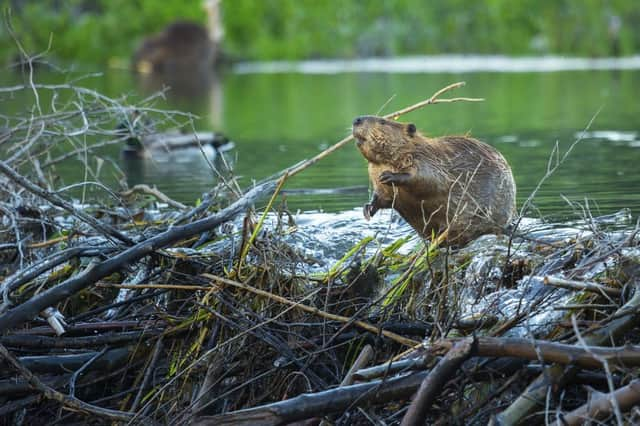Beavers win legal ‘right to remain’ on UK river after 400 years of extinction - here’s why


Fifteen families of beavers have been allowed to stay permanently on River Otter in Devon after the government granted them the legal “right to remain”.
The decision comes following a study carried out over five years by the Devon Wildlife Trust.
Advertisement
Advertisement
Beavers were hunted to extinction 400 years ago, and this marks the first time an extinct native mammal has been reintroduced to England with government support.
Impact of beavers on the environment
The study by the Devon Wildlife Trust looked into beavers' impact on the local environment.
The River Otter study showed that the beavers both replenished and enhanced the ecology of the river catchment in the East Devon area, increasing the "fish biomass", and improving the quality of the water.
The beavers’ dams also worked as natural flood-defences, which helped to reduce the risk of homes located downstream from flooding.
Advertisement
Advertisement
The research helped the Department for Environment, Food and Rural Affairs to make its decision to give the beavers the right to live, roam, and reproduce on the River Otter.
There are at now least 50 adults and baby beavers, known as kits, on the river.
‘Ground-breaking decision’
Wild beavers had been extinct in England for 400 years before video evidence appeared of a beaver with young on the River Otter in 2013.
It wasn’t known how the beavers came to be there, and they initially faced being removed.
Advertisement
Advertisement
However, working with the University of Exeter, Clinton Devon Estates, and the Derek Gow Consultancy, the Devon Wildlife Trust won a five-year licence to be able to study the animals.
Peter Burgess, director of conservation at Devon Wildlife Trust, said: "This is the most ground-breaking government decision for England's wildlife for a generation.
“Beavers are nature's engineers and have the unrivalled ability to breathe new life into our rivers.”